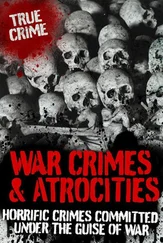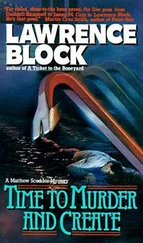Rape, Murder and Genocide
Nazi War Crimes as Described by German Soldiers
By Jan Fleischhauer
Translated from the German by Christopher Sultan
Part 1: Nazi War Crimes as Described by German Soldiers
It is March 6, 1943, and two German soldiers are talking about the war. Fighter pilot Budde and Corporal Bartels were captured by the British a few weeks earlier. The war is over for them, and it’s time to share memories.
Budde: “I flew two spoiling attacks. In other words, we shelled buildings.”
Bartels: “But not destructive attacks with a specific target, like what we did?”
Budde: “No, just spoiling attacks. We encountered some of the nicest targets, like mansions on a mountain. When you flew at them from below and fired into them, you could see the windows rattling and then the roof going up in the air. There was the time we hit Ashford. There was an event on the market square, crowds of people, speeches being given. We really sprayed them! That was fun!”
Two other pilots, Bäumer and Greim, also had their share of amusing experiences, which they described in a conversation with other soldiers.
Bäumer: “We had a 2-centimeter gun installed on the front (of the aircraft). Then we flew down low over the streets, and when we saw cars coming from the other direction, we put on our headlights so that they would think another car was approaching them. Then we shot them with the gun. We had a lot of successes that way. It was great, and it was a lot of fun. We attacked trains and other stuff the same way.”
Greim: “We once flew a low-altitude attack near Eastbourne. When we got there we saw a big castle where there was apparently a ball or something like that being held. In any case, there were lots of women in nice clothes and a band. We flew past the first time, but then we attacked and really stuck it to them. Now that, my dear friend, was a lot of fun.”
It is an unfamiliar and disconcerting tone that soldiers Budde, Bartels, Bäumer and Greim use in these conversations. It has little to do with the tone one encounters in television documentaries or memoirs about the war. But it’s the way soldiers talk when they are together and chatting about their experiences.
The public discourse about war is characterized by contempt for the bloody sides of the military profession, a contempt to which soldiers themselves conform when they are asked to describe their experiences. But there is also another view of war, one in which it is not only an endless nightmare, but also a great adventure that some soldiers later remember as the best time of their life.
In World War II, 18 million men, or more than 40 percent of the male population of the German Reich, served with Germany’s military, the Wehrmacht, and the Waffen-SS. Hardly any other segment of time has been as carefully studied in academia as the six years that began with Germany’s invasion of neighboring Poland in September 1939 and ended with the total capitulation of the German Reich in May 1945.
Even historians find it difficult to keep track of the literature on the deadliest conflict in human history. The monumental “Germany and the Second World War,” which was completed three years ago by the Military History Research Institute in Potsdam near Berlin and is seen as the standard German work on the war, encompasses 10 volumes alone.
Every battle in this monstrous struggle for control over Europe has its fixed place in the historical narrative today, as does, of course, the horrible violence that left 60 million dead around the world, including the suffering of the civilian population, the murder of the Jews and the partisan war in the East.
But how the soldiers experienced the war, how the constant presence of death and violence changed them, what they felt and feared, but also enjoyed—all of this tends to be marginalized in historical accounts. History was long suspicious of the subjective view of the events it considers, preferring to stick to verifiable dates and facts.
But this also has to do with the incompleteness of sources. Military letters, reports by contemporary witnesses or memoirs provide a sugarcoated version of reality. The recipients of these personal accounts were the wives and families of soldiers or the broader public. Descriptions of the daily business of war, in which soldiers just happened to massacre the residents of a village or “brush” a few girls, as rape was called in the troops’ jargon, had no place in these accounts.
It isn’t just that the recipients’ expectations stood in the way of soldiers providing truthful accounts of what had actually happened—the time that had passed since the war also distorted the soldiers’ views of their experiences. In other words, anyone who wants to obtain an accurate picture of how soldiers see a war must gain access to them and gain their trust as early as possible, so that they can speak openly without the fear of being called to account afterwards.
What already seems hardly feasible for current military operations like the war in Afghanistan is nearly impossible when it comes to an event that happened so long ago as World War II. Nevertheless, two German historians have managed to produce precisely such a documentary of perceptions of the war using live historical recordings.
The material that historian Sönke Neitzel uncovered in British and American archives is nothing short of sensational. While researching the submarine war in the Atlantic in 2001, he discovered the transcripts of covertly recorded conversations between German officers in which they talked about their wartime experiences with an unprecedented degree of openness. The deeper Neitzel dug into the archives, the more material he found. In the end, he and social psychologist Harald Welzer analyzed a total of 150,000 pages of source material. The result is a newly published book with the simple title of “Soldaten” (“Soldiers”), published by S. Fischer Verlag. The volume has the potential to change our view of the war.
The recordings, which were made using special equipment that the Allies used to secretly listen in on conversations between German prisoners of war in their cells starting in 1939, offer an inside view of World War II. In doing so, they destroy once and for the myth of a “clean” Wehrmacht.
In “Soldiers,” which is subtitled “Transcripts of Fighting, Killing and Dying,” the soldiers talk about their views of the enemy and their own leaders, discuss the details of combat missions and trade astonishingly detailed accounts of the atrocities they both witnessed and committed.
There are always reasons given for killing. Sometimes the reason can be as simple as someone not walking to the other side of the street quickly enough or not handing over an item right away.
Zotlöterer: “I shot a Frenchman from behind. He was riding a bicycle.”
Weber: “At close range?”
Zotlöterer: “Yes.”
Heuser: “Did he want to take you prisoner?”
Zotlöterer: “Nonsense. I wanted the bicycle.”
Part 2: Allies Hoped to Discover Military Secrets
By the spring of 1945, about a million members of the Wehrmacht and the Waffen-SS had been captured by British or American forces. Most were placed into normal POW camps after being captured. But between September 1939 and October 1945, more than 13,000 German prisoners were transferred for closer “observation” to special facilities that the Allies had initially established in England, at the Trent Park manor north of London and at Latimer House in Buckinghamshire, and at Fort Hunt in the US state of Virginia starting in the summer of 1942.
Читать дальше












